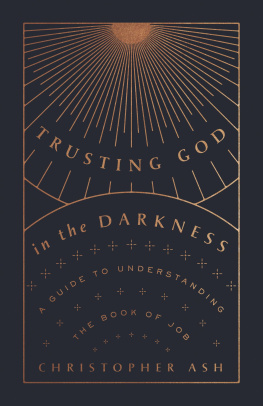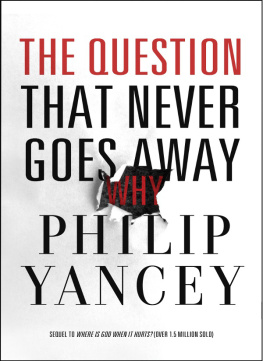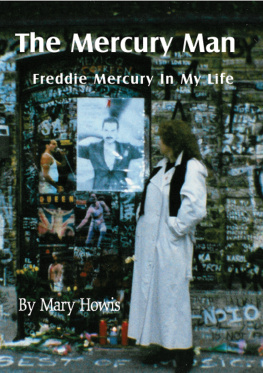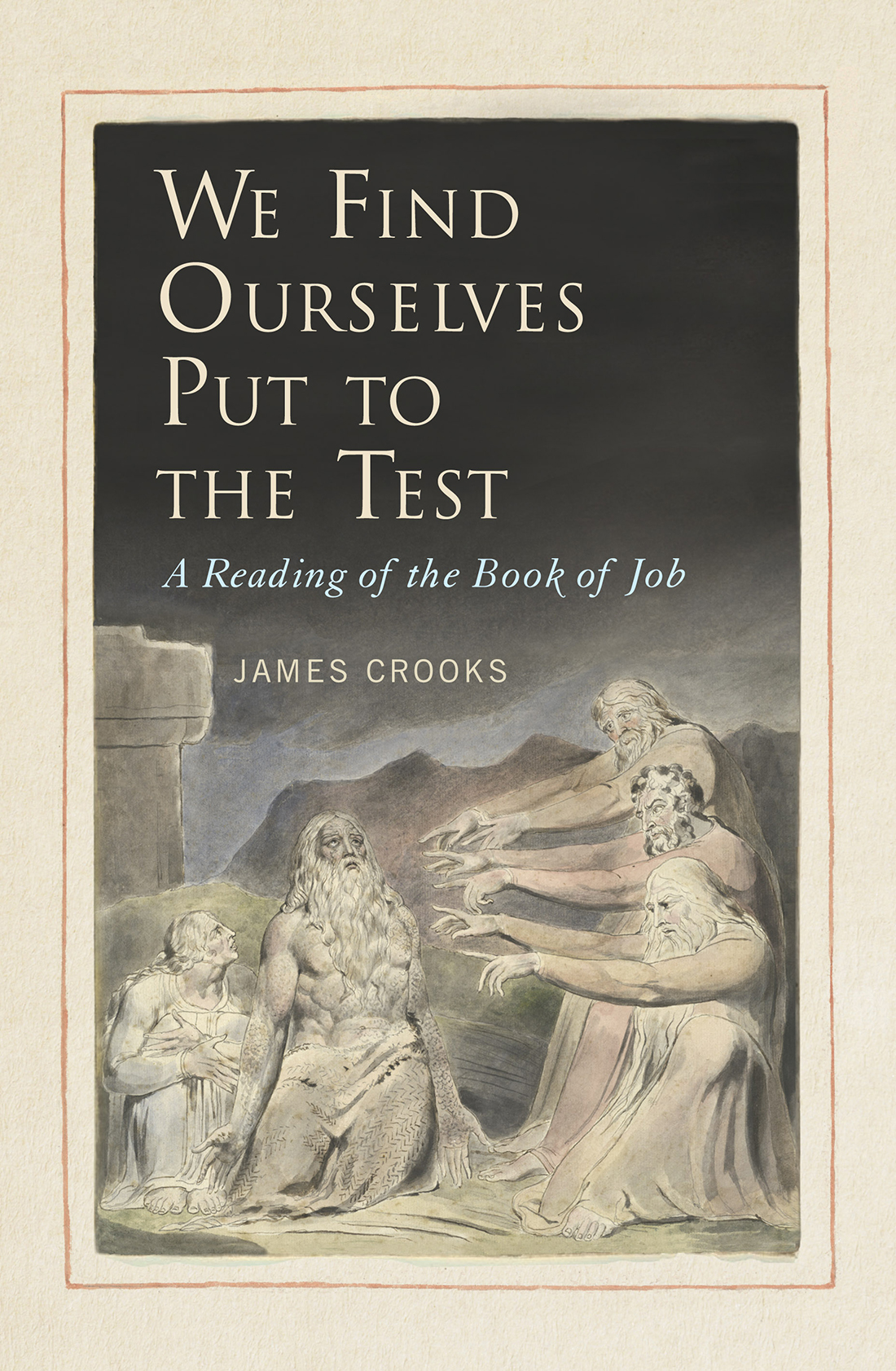WE FIND OURSELVES PUT TO THE TEST
We Find Ourselves
Put to the Test
A Reading of the Book of Job
JAMES CROOKS
McGill-Queens University Press
Montreal & Kingston London Chicago
Copyright
McGill-Queens University Press 2018
ISBN 978-0-7735-5315-6 (cloth)
ISBN 978-0-7735-5437-5 (e PDF )
ISBN 978-0-7735-5438-2 (e PUB )
Legal deposit second quarter 2018
Bibliothque nationale du Qubec
Printed in Canada on acid-free paper that is 100% ancient forest free
(100% post-consumer recycled), processed chlorine free
This book has been published with the help of a grant from Bishops University.
We acknowledge the support of the Canada Council for the Arts, which
last year invested $153 million to bring the arts to Canadians throughout
the country.
Nous remercions le Conseil des arts du Canada de son soutien. Lan dernier,
le Conseil a investi 153 millions de dollars pour mettre de lart dans la vie
des Canadiennes et des Canadiens de tout le pays.
Library and Archives Canada Cataloguing in Publication
Crooks, James, 1959, author
We find ourselves put to the test: a reading of the Book of Job /
James Crooks.
Includes bibliographical references and index.
Issued in print and electronic formats.
ISBN 978-0-7735-5315-6 (cloth). ISBN 978-0-7735-5437-5 ( e PDF ).
ISBN 978-0-7735-5438-2 ( e PUB )
1. Job (Biblical figure). 2. Bible. Job Criticism, interpretation, etc.
I. Title.
BS 1415.52. C 76 2018 ' .106 2018-900249-2
C 2018-900250-6
This book was typeset by Marquis Interscript.
For Marge and Bob:
there are none like them on the earth
Contents
Preface : Take Up and Read!
Thus much I uttered, weeping, in the most bitter contrition of my heart: whenas behold I heard a voice from some neighbours house,
as it had been of a boy or girl, I know not whether, in a singing tune saying, and often repeating: Take up and read, Take up and read.
For almost twenty-five years now Ive met with a handful of colleagues, students, and other fellow-travellers on Friday afternoons, in the living room of a good friend to read and discuss texts of mutual interest. In the 1990s, subject to the passion of the groups core members, we looked almost exclusively at Platos dialogues. More recently, weve picked up a number of other works of classic philosophy and literature. Our meetings have taken a variety of forms. Sometimes discussions have been framed or led by an expert. Sometimes members of the group have presented embryonic versions of their own work. In the last seven or eight years, we have for the most part simply read aloud some passage (usually four or five pages) of whatever were studying, and then weighed its contents. Its no exaggeration to say that for me these conversations undertaken always in trust and friendship, founded on the conviction that the monuments of our intellectual tradition have in them something of inestimable value, that grappling with them will make us better teachers and better people have been the most formative talks of my working life.
As I came within hailing distance of the end of a first draft of my reflections on the Book of Job, I asked my colleagues if they had any interest in hearing my work. Their response was typically generous and so we agreed, for the first time in our long association, to read the Bible together. Not more than twenty minutes into our inaugural session, the challenges of this project had begun to emerge. The mists of history have created accidentally for the Book of Job the effect Plato sometimes orchestrates deliberately in dialogues such as the Symposium and the Parmenides namely, a severing of the reported conversation from anything like verifiable historical events that could act as an independent standard for evaluating the statements and motivations of its participants. Although the consensus of scholars is that the Book of Job as we have it appeared between the seventh and fourth centuries BCE , there is, in the tradition of biblical exegesis, a lively debate as to its date of composition. may have been exposed to, adapted, or appropriated. Indeed, we cant be certain that we are dealing with a single writer, that what we have hasnt been amended substantially by generations of editors and copyists.
Then there is the poem itself. In the Hebrew Bible, it is part of the Hagiographa (Writings) sitting between Proverbs and The Song of Songs. In the Christian Bible, it is the first book of the so-called wisdom literature that also includes Psalms, Proverbs, and Ecclesiastes. Its forty-two chapters (a mere thirty-seven pages in the Revised Standard Version [ RSV ] I will be citing) comprise five episodes of unequal length: a prologue, with scenes alternating between heaven and earth, introducing God, Satan, and Job, and culminating in the destruction of our protagonists property, the death of his children, and the loss of his health (Chapters 12); an extended dialogue between Job and three of his friends Eliphaz, Bildad, and Zophar who, having learned of his suffering, arrive to comfort him (Chapters 331); the speeches of a younger man Elihu who, overhearing that dialogue, thinks neither Job nor his friends have accounted properly the meaning of suffering (Chapters 3237); an epiphany that arrives as a voice from the whirlwind, in which God himself speaks (Chapters 3841); and an epilogue, in which Job acknowledges the wonders God reveals to him and has his fortunes restored (Chapter 42). There is no page free of linguistic controversy. The Hebrew text is in many places uncertain. As a result, translators must speculate and often disagree. The philosophical/theological stakes here can be alarmingly high. To take but one example, the King James Version of the Bible renders 19:26 as:
And though after my skin worms destroy this body, yet in my flesh shall I see God (italics mine).
The RSV reads:
And after my skin has been thus destroyed, then without my flesh I shall see God (italics mine).
We made a point, in our discussions, of consulting and reading from a variety of translations. In addition, I always brought Robert Gordiss The Book of Job: Commentary, New Translation, and Special Studies . Its verse-by-verse analysis gives you access to the wider frame of Biblical Hebrew and related ancient Near Eastern languages, marshalling very powerfully the resources of the scholarly tradition for cracking some of the texts most persistent linguistic riddles.
Still and here I come to my real concern the controversies regarding dates, authorship, and translation pale in comparison to the challenges presented by the Book of Jobs substantive existential/philosophical contradictions: its portrait of a suffering that both destroys and ennobles the sufferer, of a God who both loves and abandons His faithful servant, of friends whose comfort culminates in rage, of a protagonist whose bitterness ferments, against all expectation, into patience. As our little group struggled with these contradictions, it became evident that our goal ought not to be the dream of eliminating them (in the sense of dissolving them into a scholarly account of the social and political forces at work in the poems production, or of integrating them into a theological apologetic of suffering) but of finding a way to own them, of trying to articulate the truth that moves in them, of bringing them to life.










